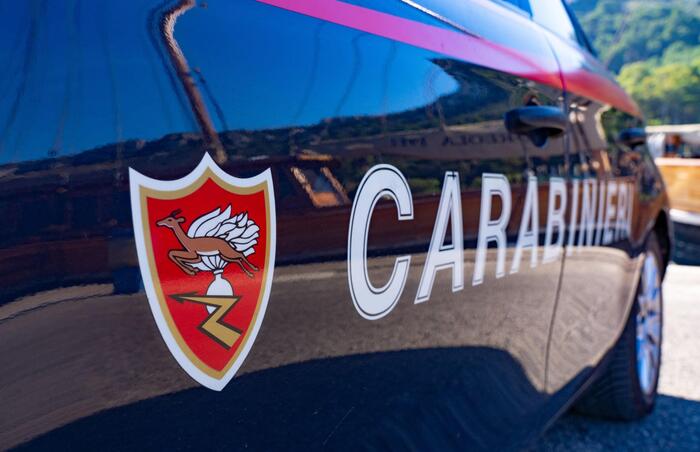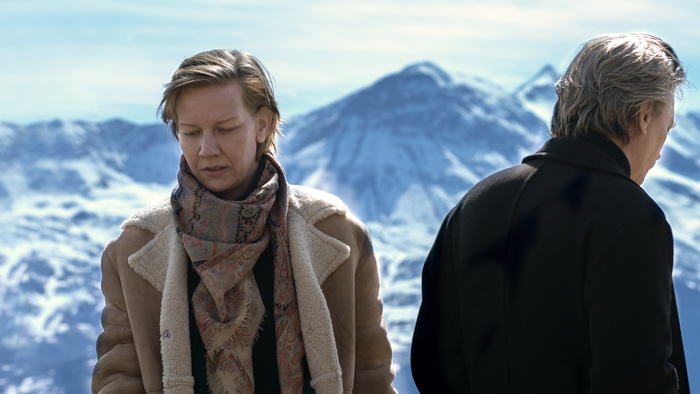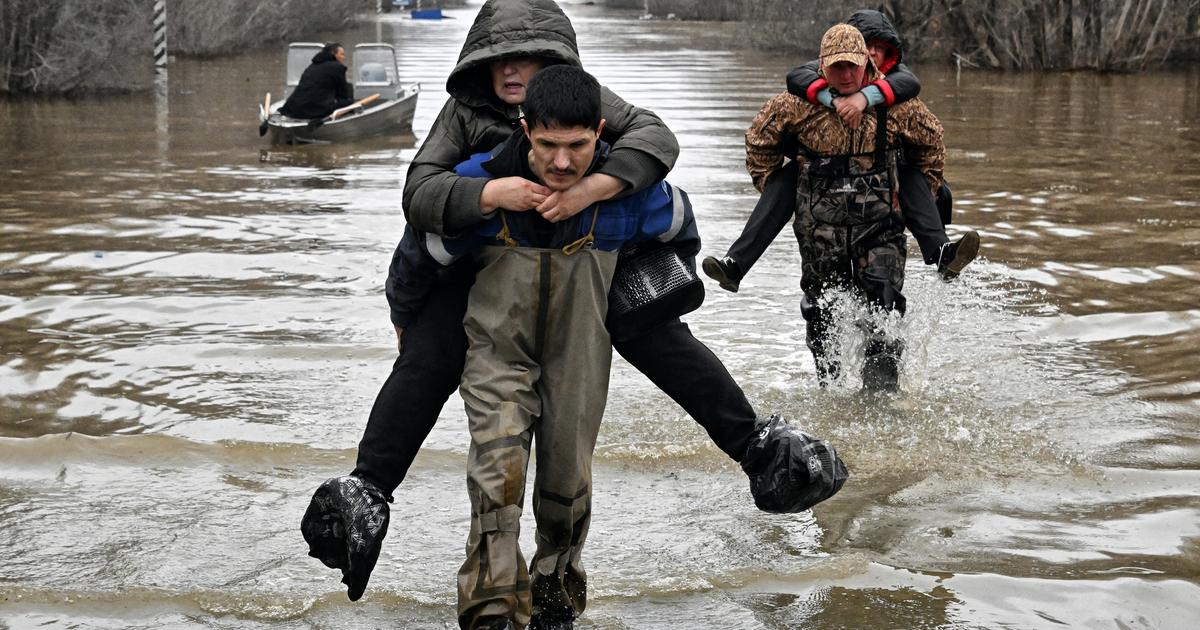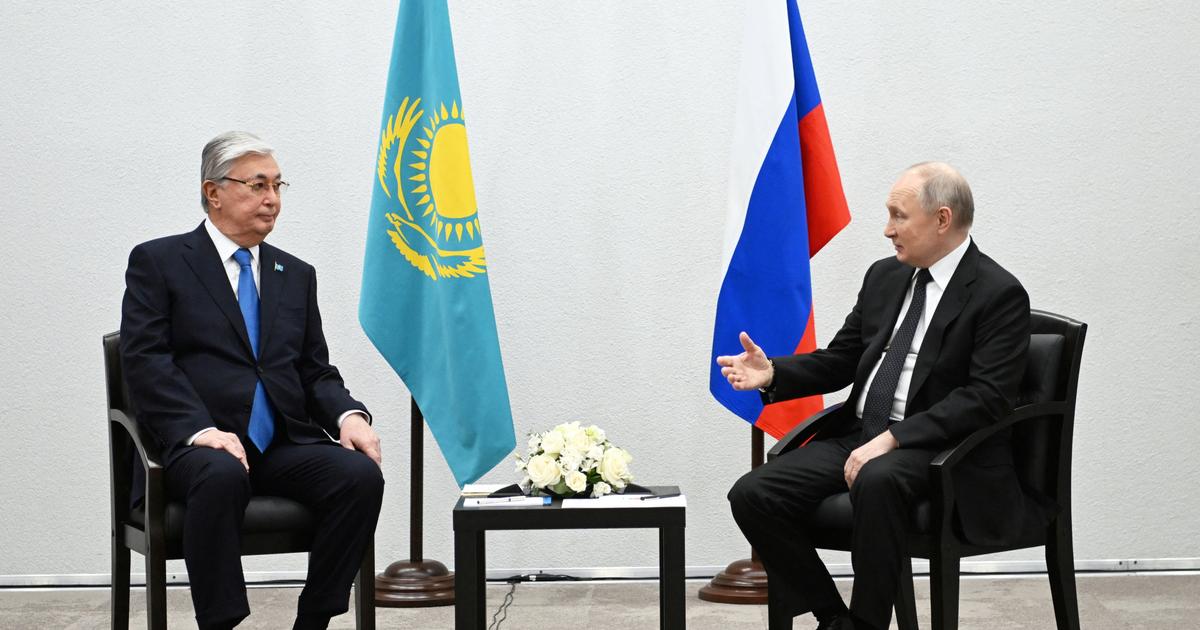The demonstrations ended in a bloodbath, with shootings, looting, burning of government buildings, terror spreading among citizens, the arrival of Russian tanks, hundreds of deaths, thousands of detainees, an information blackout and the imposition of a strange normality militarized. But for a few days in early January, when activists, opponents and thousands of other people peacefully took to the streets of Kazakhstan to protest rising fuel prices and call for far-reaching reforms in the country, some, for a moment, they came to believe that the regime could fall. With the return to order, however, many had to return to their burrows to continue the fight.
At the top of an old block of flats, on the outskirts of Almaty, the financial capital of the country and the epicenter of the Kazakh protests, there is an empty apartment with no furniture. Inside is Zhanbolat Mamai, 33, along with two people he trusts. A friend has lent him this kind of safe house so that he can attend visitors. Zhanbolat, a well-known opponent, still has the lid of one eye red from the blows he received during the protests. He looks out the window, towards where the demonstrations started on January 4, which he himself helped call. And he recounts with emotion the hope he felt when he saw thousands of people marching towards the center.
"It was something unprecedented in modern history," he recalls.
“Ordinary people, peaceful protesters, who wanted political change.
They shouted: The old man has to go!
This chant, which caught on throughout the country, from the oil provinces in the west, from where the hydrocarbons of the Caspian flow, to the steep streets of Almaty, in the extreme east and already a step away from the border with China, called for the march Nursultán Nazarbayev, 81, the president who ruled the country's plans with an iron fist for almost three decades.
Zhanbolat Mamai, opposition leader detained and beaten during protests in Almaty, Kazakhstan, last Thursday.
Samuel Sanchez (THE COUNTRY)
In 2019, Nazarbayev left power and was succeeded by his collaborator, the current president, Kasim-Yomart Tokayev, but his tentacles have continued to pull many of the strings. The former president retained the spiritual leadership of Kazakhstan; in many places his face is still omnipresent; the capital, Astana, was renamed Nur-Sultan in his honour; control of a good number of businesses was ensured through relatives and related people, according to his critics, and he also remained in charge of key positions, such as the presidency of the National Security Council.
Political activist Zhanbolat believes that the country has not completely turned the page. "People in Kazakhstan are fed up with living under an authoritarian regime," he says. Founder of the Democratic Party, not officially recognized, in 2017 this journalist spent seven months in prison and another three on probation, after being convicted of laundering money through the newspaper in which he wrote, critical of power (a crime that he denies ). He was also banned from working as a journalist for three years. He has been arrested numerous times. He was also arrested and beaten by law enforcement in the early stages of the January demonstrations. But he was released and marched to Republic Square, where the protests turned violent and ended in bloody gun battles on the vast Soviet-style avenues.
Zhanbolat assures that he was trying to impose calm, but a mob began to beat him.
He shows a photo on his cell phone in which his face is swollen, bruised and bandaged.
The activist denounces that, on the second day, the protests were broken up by criminal groups related to the elites in power, changing the course of events.
Different layers of crisis
The crisis in Kazakhstan, for a moment, seemed to go the way of the democratic revolution in Ukraine. But it quickly turned into a multi-dimensional complex crisis, a “melée”, as a western analyst in Almaty calls it, in which different layers are superimposed: there are the oil workers protesting the soaring prices of liquefied gas in this country rich in hydrocarbons, the activists who demand democracy and freedoms, the young people with no prospects who come from the suburbs who loot shops, steal mobiles and sports cars and burn cars, in the style of the
banlieues
Parisians.
And, on top of that, there is a political thriller of palace intrigues and a geopolitical game in which President Vladimir Putin has managed to advance his pawns in one of the largest and most resource-rich countries in the world.
The puddles of blood that were still on the ground days after the shootings are, deep down, the reflection of a confused sum of interests, of which very little is still known.
For a dozen days there has not even been an official number of deaths.
Finally, this Saturday the Prosecutor's Office has made public the figure of 225 dead, including 19 members of the security forces and bodies, and 4,500 wounded, most of them in Almaty.
The list of detainees is around 10,000, according to the Government.
“There are many statements. But where are the facts?” Kazakh analyst Dosym Satpayev, director of the Kazakh Risk Assessment Group, sums up that feeling of knowing nothing. It is as if the country is still, in part, in the shadows caused by the internet cutoff decreed by the authorities to hinder communications in the hardest moments of the confrontations.
In the opinion of this political scientist, the violent turn of the demonstrations was a war between political families for control of power in Nur-Sultan, with its extension in the form of criminal groups in the streets. "The conflict between Tokáyev and members of the Nazarbayev family was the main reason for destabilization in Kazakhstan," Satpayev asserts, although without firm evidence. But it provides clues: in the early stages of the protests, the current president stopped and arrested the head of the Kazakh secret services, Karim Masimov, close to Nazarbayev, on suspicion of high treason against the state. A famous leader of a criminal gang, Arman Dzhumageldiyev, known as
Savage Arman , was also arrested.
.
And Nazarbayev was suddenly dismissed from his post as president of the Security Council.
Since then, he has been missing and showing no signs of life.
More clues: In an unprecedented script twist, President Tokayev went so far as to charge in a speech this week against the legacy of his predecessor, whom he blamed for having fostered "a rich caste."
And this same Saturday the national gas company and the national oil transportation company announced the dismissal of two sons-in-law of Nazarbayev, who held managerial positions.
"The turning point in the massive peaceful protests was the appearance of government-controlled criminal groups that organized riots, fires and looting," also states a recent report prepared by the Italian Federation for Human Rights together with 11 civil organizations from Kazakhstan.
The study also denounces the falsity of the allegations made by President Tokáyev, who claimed that the country was facing terrorist groups coordinated from abroad. "The regime claimed that Kazakhstan had been attacked by 20,000 international terrorists," the document says, "to justify the shooting and the arrival of the occupation troops," it says in reference to the intervention of the Security Treaty Organization troops. Collective. This military association of the post-Soviet space, led by Russia, deployed more than 2,000 soldiers in a flash to contain the crisis.
"Tokayev did not trust his security services," says a Western analyst in Almaty. That is why he had to demand the intervention of the Russians; With his entry and the harsh repression of the protests, the current president has tied his leadership against the groups related to Nazarbayev. "He has shown the elites that he has Putin's support," adds political scientist Dosym Satpayev. In turn, the Russian president has won a loyal friend with a debt and has sent a message to other actors in Central Asia: "He has made it clear to them who is boss in the area," says the Western analyst. "Who are you going to call if you have a problem?"
For the opposition Zhanbolat, the arrival of violent gangs and their repression has had the objective of further undermining the role of those who, like him, demand greater freedoms without violence. “Political activists do not participate in criminal actions. We organize peaceful protests. The regime wants to use this situation to destroy the political opposition against it,” he denounces.
In a harsh report published this week, Human Rights Watch estimates that, in the last year, respect for fundamental rights has not advanced in Kazakhstan. "The authorities cracked down on critics of the government using overly broad charges of extremism, restricted the right to peaceful protest, suppressed freedom of expression," says the report, which does not cover the current crisis. The power, it adds, "continued to interfere and routinely restrict the right to peaceful assembly by arresting, fining or sentencing to short prison sentences" those who exercised this right. And it explains how the police increasingly resorted to the practice of "locking up" protesters by de facto detaining groups in the street for up to 10 hours.
“Here you can't criticize the president because you end up dead!” shouts one of the protesters. It is the end of November, just over a month before the protests, and a small demonstration takes place in Almaty to denounce the death of the poet and dissident Aron Atabek, who has died at the age of 68 due to complications from covid after spending 15 years in prison Atabek was sentenced to 18 years in prison after being found guilty for the death of a police officer in violent clashes in 2006. He always defended his innocence. At the demonstration, her daughter and the activists denounce that her health worsened behind bars due to torture and ill-treatment.
In the concentration there are almost as many protesters as members of the security services (the organizers have counted 32). They're wearing dark coats and sunglasses and they record the scene and they touch their ears and they try to intimidate the press and the audience. The rally has been called by the opposition group Awake Kazakhstan, formed in 2019. Two of its members, Darkhan Sharipov and Dana Sharipova, 32, who have three arrests between them, confess: "We are risking our freedom to be here." And also: "We ask for a constitutional reform, a change in the electoral system and a balance of powers."
At that time, little did he foresee what would end up happening in the first days of January. Young Mira Ungarova, another 18-year-old activist from Awake Kazakhstan, joined the protests in Almaty on the first day; He suffered the effects of pepper spray until he almost vomited, and he saw in person how the peaceful demonstration turned violent, because of "provocatives". She listened in terror to the detonations of stun grenades and couldn't believe it when she saw tanks and heard the sound of gunfire (a rattle she didn't understand until later). "It's just that I'm a bit naive," he says a few days after the events, in a cafeteria located a step away from the burned buildings. The city has been recovering normal life, shops reopen and Russian tanks have already begun their withdrawal.
Mira Ungarova, an opponent of the Wake Up Kazakhstan movement and a participant in the protests in Almaty, Kazakhstan.
Samuel Sanchez (THE COUNTRY)
"The spark was not only the increase in the price of oil, but the result of 30 years of constant disrespect for the fundamental human rights of Kazakhs, repression and violation of freedoms," says this young blonde with an oriental face. , who began to get involved in dissident movements at the age of 15, in 2019. At that age, he says, he was struck by the fact that the country's capital was renamed "a dictator."
Ungarova has a combative and articulate speech: “I am fed up with unfair elections. The system is broken. Government money goes to certain elite groups, created by the dictator, who enjoy a good life while Kazakhs live below the poverty line. There is no freedom of expression. And there is still political repression and there are political prisoners.”
He also assures that he fears what may happen after the bloodbath.
"It reminds me of Belarus," he explains, referring to the democratic uprisings of the summer of 2020, when thousands of people took to the streets to demand the fall of Aleksandr Lukashenko's regime.
"After the protests, the country became even more authoritarian," he concludes and, leaving the cafeteria, he goes down the same street where a week ago there were burning buildings, tanks and machine gun fire.
Have you heard our
Spanish news podcast
What?
Each week we try to explain the curious, the under-reported and sometimes simply bizarre news stories that are often in the headlines in Spain.
Sign in to continue reading
Just by having an account you can read this article, it's free
RegisterLogin
Thanks for reading THE COUNTRY

/cloudfront-eu-central-1.images.arcpublishing.com/prisa/M4MMMJVFKJ2AIRPY5MSCNWANUE.jpg)













